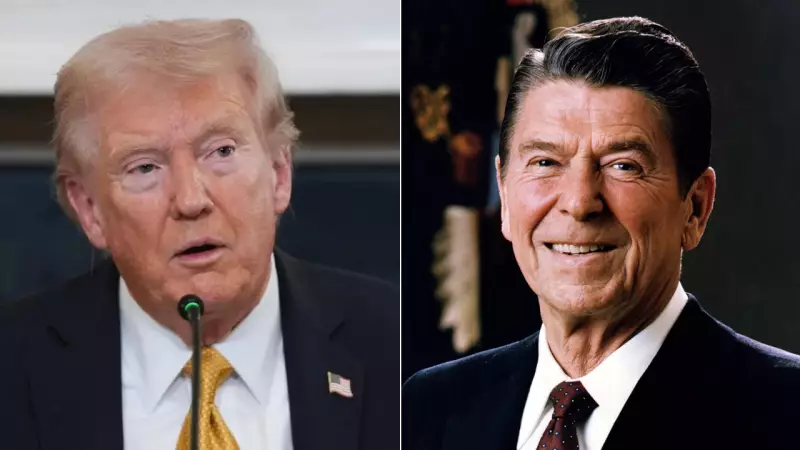
In a striking contrast of Republican economic philosophies, former President Ronald Reagan's historical stance on tariffs presents a direct challenge to Donald Trump's current protectionist approach. Archives reveal Reagan not only disliked tariffs but explicitly warned against the very policies Trump is implementing today.
The Gipper's Trade Philosophy
Ronald Reagan, often celebrated as a conservative icon, maintained a firm belief in free markets and open trade throughout his presidency. Historical documents and speeches show he viewed tariffs as counterproductive measures that ultimately harmed American consumers and businesses alike.
"Protectionism is destructionism," Reagan famously declared, framing trade barriers as economic self-sabotage rather than patriotic policy. This philosophy stands in stark contrast to the current tariff-heavy strategy embraced by the Trump campaign.
Trump's Protectionist Turn
The former president has proposed sweeping tariffs that would dramatically reshape American trade policy. Trump's plan includes:
- Universal baseline tariffs on most imported goods
- Aggressive retaliatory measures against trading partners
- Potential 60% tariffs on Chinese imports
- 10% across-the-board tariffs on all imports
This approach marks a significant departure from traditional Republican free-trade principles that Reagan championed during his administration.
Economic Warnings Come to Life
Reagan specifically cautioned that protectionist policies would lead to:
- Higher consumer prices for American families
- Reduced competitiveness for US exporters
- Trade wars that damage global economic stability
- Strained international relationships with allies
Economists note that these warnings are particularly relevant today as Trump's proposed tariffs could trigger the very consequences Reagan sought to avoid.
The Patriotism Paradox
While tariff policies often appear patriotic by promising to protect American jobs, Reagan argued they frequently achieve the opposite effect. His administration believed that true economic strength came from competition and innovation, not from walling off American markets from global trade.
This philosophical divide highlights a fundamental tension within modern conservative economic thought, pitting populist protectionism against traditional free-market principles.
As the 2024 election approaches, this historical perspective raises critical questions about the direction of US trade policy and whether America will heed Reagan's warnings or chart a new protectionist course that the Gipper explicitly rejected.





